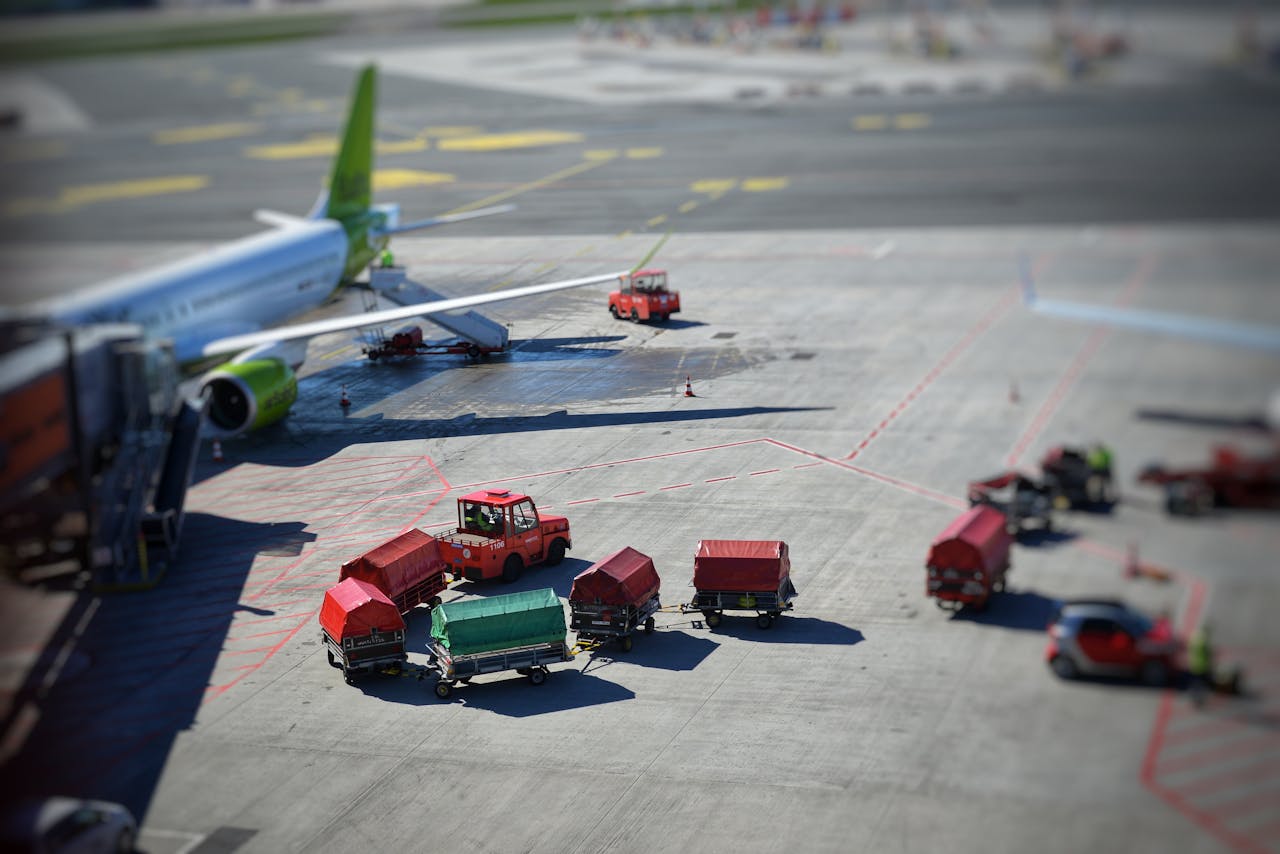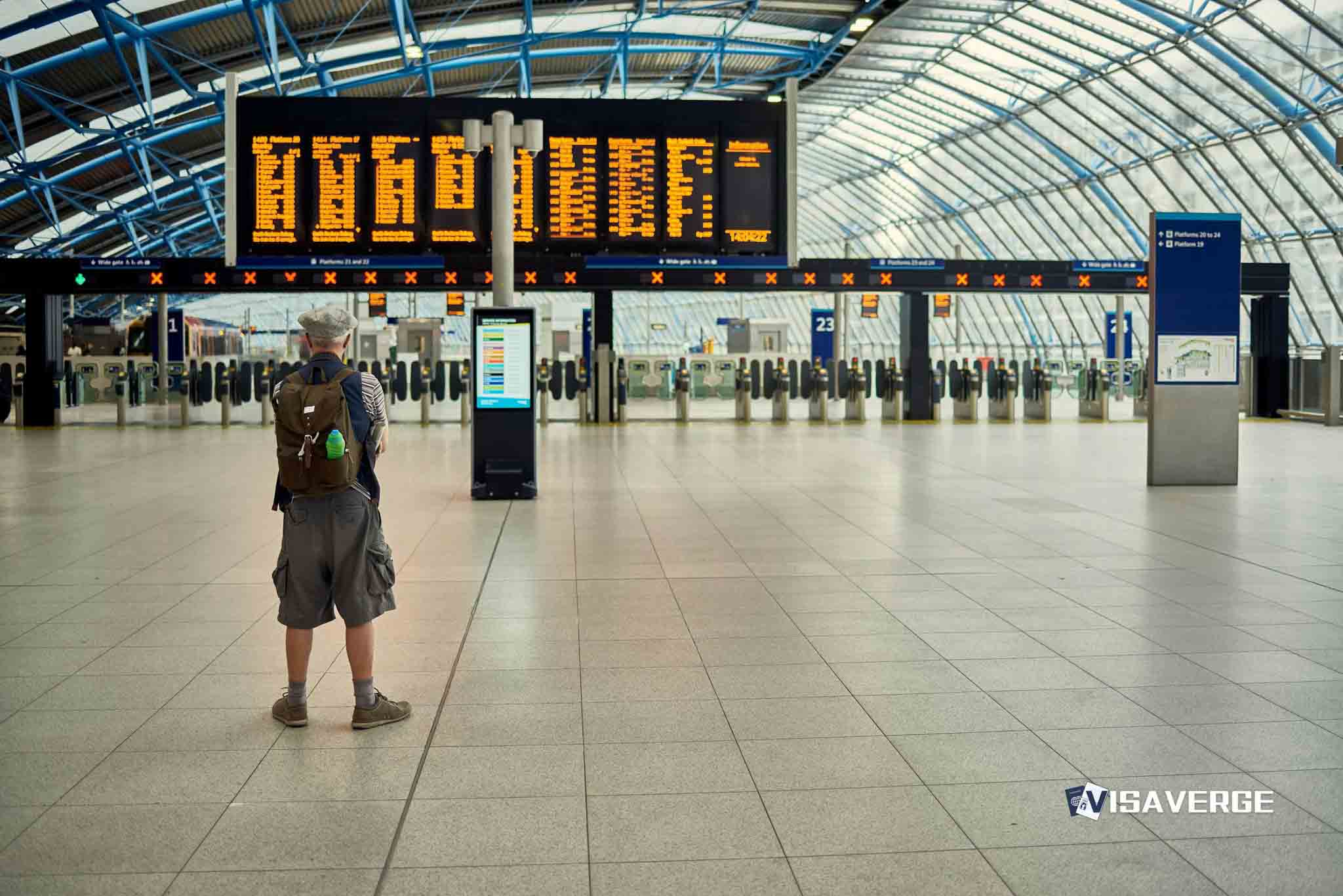A new luggage tag scam is spreading in airports across the United States 🇺🇸 in 2025, with a Delta Air Lines baggage claims manager warning travelers to be extra careful. Criminals are picking up discarded luggage tags from baggage claim areas and using the information to file fake claims for missing items. This scam has grown quickly over the past few months, causing problems for both passengers and airlines.
The scam first gained attention in July 2025, when a Delta Air Lines baggage claims manager posted a warning on Reddit. The manager described a sharp rise in fraudulent baggage claims, all linked to information found on thrown-away luggage tags. By August 2025, major travel news outlets and experts had picked up the story, urging travelers to protect their bag tags and avoid becoming victims.

How the Luggage Tag Scam Works
Fraudsters wait in baggage claim areas for travelers to throw away their used luggage tags. These tags usually show the passenger’s last name, flight number, and a unique bag tag number. Scammers then use this information to file fake claims with airlines, pretending their luggage was lost or stolen. Sometimes, they even create email addresses and contact details that match the passenger’s name, making the claim look real.
This scam is causing real trouble for honest travelers. Airlines now have to check every claim more carefully, which means longer wait times and more paperwork for people who have actually lost their bags. According to analysis by VisaVerge.com, the scam is not only wasting airline resources but also making it harder for real victims to get help quickly.
Official Response and Airline Actions
As of August 5, 2025, airlines like Delta Air Lines are aware of the luggage tag scam and are watching for suspicious claims. While there has not been a public statement or official policy change from major U.S. airlines or the Transportation Security Administration (TSA), airlines have started to tighten their internal claim checks. This means they are looking more closely at every claim to spot possible fraud.
Some airports in Japan and other countries have already started using secure disposal bins for bag tags near baggage claim exits. These bins make it harder for scammers to get their hands on discarded tags. U.S. airports are now discussing whether to add similar bins, but no official changes have been made yet.
Expert Opinions and Advice
Travel industry expert Gary Leff says the luggage tag scam is believable but not likely to become a huge problem. Airlines keep careful records of every bag, from check-in to delivery, so it is hard for scammers to succeed if the bag was delivered as planned. Still, Leff and other experts recommend that travelers keep their bag tags until they are sure all their luggage has arrived safely. After that, they should destroy the tags at home, ideally by shredding them.
Leff also points out that this scam is less risky than scams involving boarding passes. Boarding passes often have more personal information, which can lead to identity theft if they fall into the wrong hands.
What Travelers Should Do
To stay safe from the luggage tag scam, travelers should follow these steps:
- Do not throw away luggage tags in public areas at the airport.
- Keep your bag tags until you have all your bags and any baggage issues are resolved.
- Destroy the tags at home, using a shredder if possible.
- Do not post photos of your luggage tags or boarding passes on social media.
- If you must get rid of a tag at the airport, look for a secure disposal bin. If there isn’t one, keep the tag on your bag until your next trip.
These simple steps can help prevent scammers from using your information to file fake claims.
Background and History
Fraud involving airline baggage claims is not new, but using discarded bag tags is a recent twist. This method only became widely known in 2025, after airline staff noticed a spike in fake claims. The information on a bag tag is limited, but it is enough for scammers to try their luck with airlines. Most tags show only a last name, flight number, and bag tag number—not full addresses or ticket numbers—but that can still be enough for a determined fraudster.
Impact on Travelers and Airlines
The luggage tag scam is causing headaches for both travelers and airlines. For passengers, it means longer wait times and more questions when filing a real claim for lost luggage. For airlines, it means more work to check each claim and make sure it is not fake. This extra work can slow down the process for everyone.
Some travelers have shared stories online about waiting days or even weeks for their claims to be processed because of the extra checks. Others worry that real claims might be denied if scammers have already used their information.
Possible Solutions and Future Changes
Airlines and airports are looking for ways to stop the luggage tag scam. One idea is to add secure disposal bins for bag tags in baggage claim areas, like those already used in some airports in Japan. These bins would make it much harder for scammers to collect tags.
Airlines are also expected to keep tightening their claim checks. This could mean more questions for travelers and longer processing times, but it is necessary to stop fraud. Travelers should be ready for these changes and plan for possible delays if they need to file a baggage claim.
Official Resources and Where to Get Help
Travelers who want to know more about baggage claim policies should check their airline’s website. For example, Delta Air Lines provides detailed information about baggage claims and lost items on their official site: Delta Air Lines Baggage Information. If you think you have been targeted by a scam or need help with a claim, contact the airline’s baggage service office at the airport or use their official customer service channels.
Summary of Key Recommendations
- Do not discard luggage tags at the airport. Destroy them at home after making sure all your bags are safe.
- Be careful with all travel documents, including boarding passes, to avoid identity theft.
- Watch for airline and airport announcements about new disposal bins or security steps.
By following these tips, travelers can protect themselves from the growing luggage tag scam and help airlines stop fraud. Stay alert, keep your travel documents safe, and always check official resources for the latest updates. If you need more details or help with a specific airline or airport, ask for direct links and contact information to get the support you need.
This Article in a Nutshell













